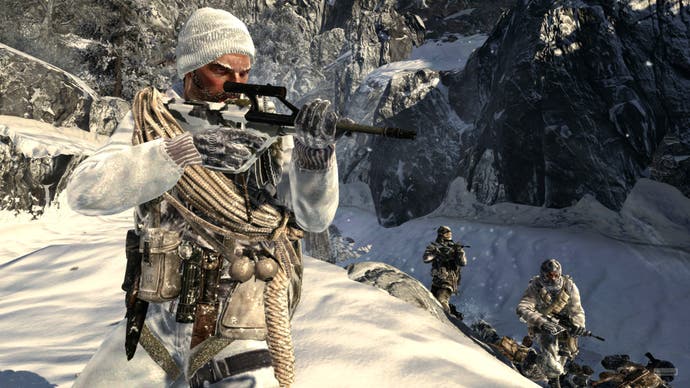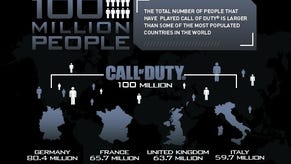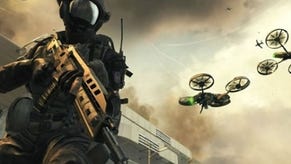Call of Duty: Black Ops
Redaction stations.
"Remember, no Russian." When the dust settled, Modern Warfare 2 took as much of a shoeing from critics as it did from politicians for its controversial terrorist smashup in an airport terminal, but while Call of Duty: Black Ops has the potential to cause even more offence – blending real and fictional events during the Cold War, even impersonating JFK and Robert McNamara to add gravitas – the closest it comes is during a pre-credits cut-scene revelation that is more "gotcha!" than grisly.
Instead, finally freed from the shadow of Infinity Ward (albeit by something of a PR mushroom cloud), Treyarch takes us back to the sixties for the birth of the US Special Forces. The action jumps between a few characters, but the story is about Alex Mason, a CIA operative who ended up in a Russian labour camp following the Bay of Pigs fiasco, which saw him captured and handed over to villainous bad guy Nikita Dragovich by Fidel Castro.
At the start of the game, Mason wakes up strapped to a chair being tortured by unknown silhouettes hiding behind frosted glass windows, and through this interrogation you relive various chapters of his adventures and those of his handler, sunglasses-loving iceman Jason Hudson, who is voiced well by a throaty Ed Harris. Mason's recollections take you through Cuba and his pivotal spell in prison, to a Russian space centre and all over East Asia as you hunt Dragovich while the game reveals his ghastly plan.
We may be deep behind enemy lines, but the scriptwriters do their best to leave no cliché behind as we leap from moving trucks to speeding trains, float down jungle rivers listening to the Stones and stealthily infiltrate mountainside communication outposts. There isn't much character to latch onto in Mason, Hudson and company, and occasionally the game is so blatant about lifting things from spy stories and Vietnam films that you develop your own thousand-yard stare. Still, at least you understand who everyone is this time, and the final reveal is confident enough – even though you see it coming, the writers can't help ramming it home five times in a row, and it's been done before on numerous occasions.

But of course none of this is the point. The point is that you have to shoot a large number of people in the face to advance along a linear path while all hell breaks loose around you, and in this regard Black Ops is as good as expected – and Treyarch is just as qualified to fill your peripheral vision with supersonic flybys, doors being blown off hinges, armies surging over hills, rockets taking off and napalm lighting up tree lines as Infinity Ward ever was.
Call of Duty arguably laid itself bare with the original Modern Warfare training level aboard a wooden ship and its pop-up cardboard enemies – the irony being it was very effective training for a game where enemies won't ever do much more to block your path than merely pop up. Black Ops doesn't try to break free of this model. Enemies (Russian, Vietnamese, Nazis, even British commandos at one point – it doesn't make any difference) take up positions behind cover and it's up to you to iron-sight them to death. If you fail it's because of your impatience or lack of observation rather than their tactics.
It's incredibly slick and spectacular, and you're always surrounded by comrades running in the right direction and yellow objective cursors to drive you where you need to go. The one occasion where the game does a poor job of signposting your next move, failing to notify you that you can kick over some napalm barrels, only stands out because it's the single exception to the golden rule: never leave the player in any doubt what to do next.









